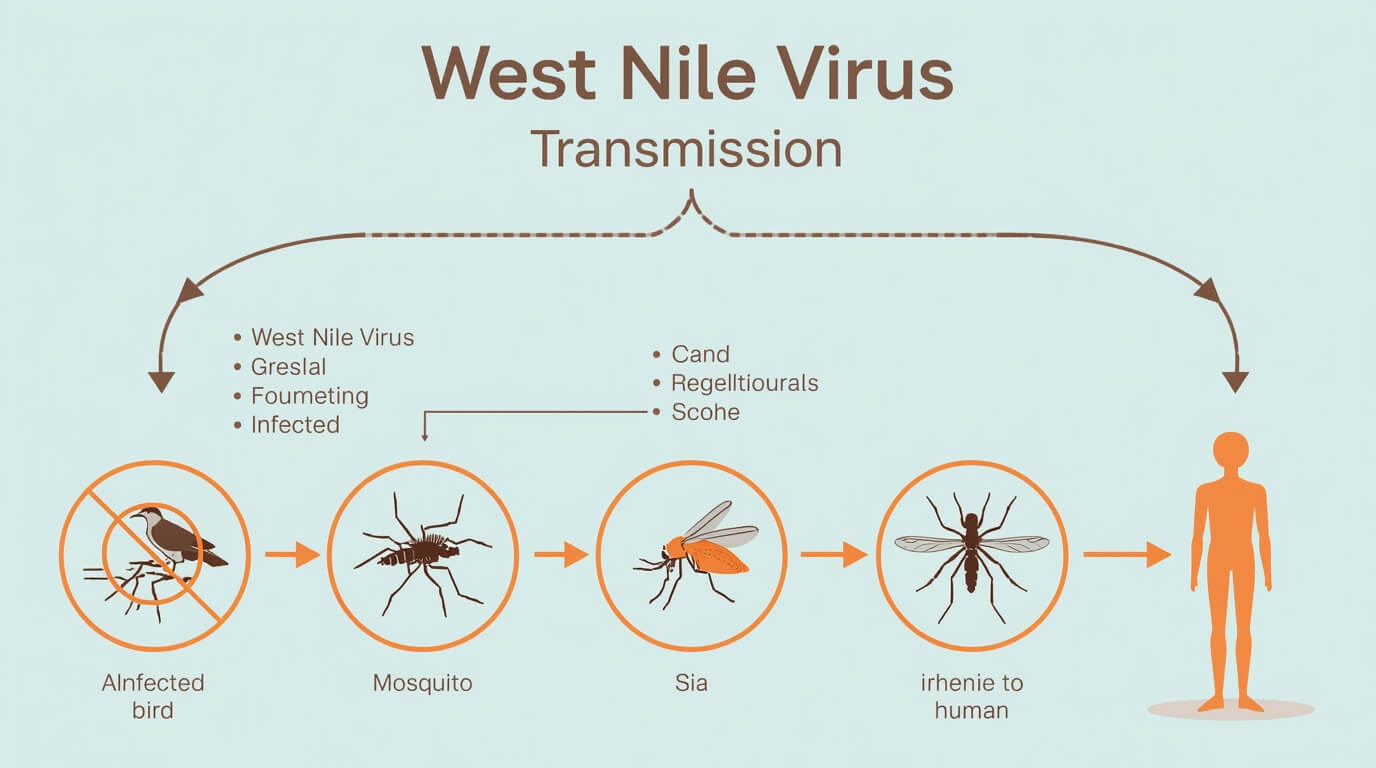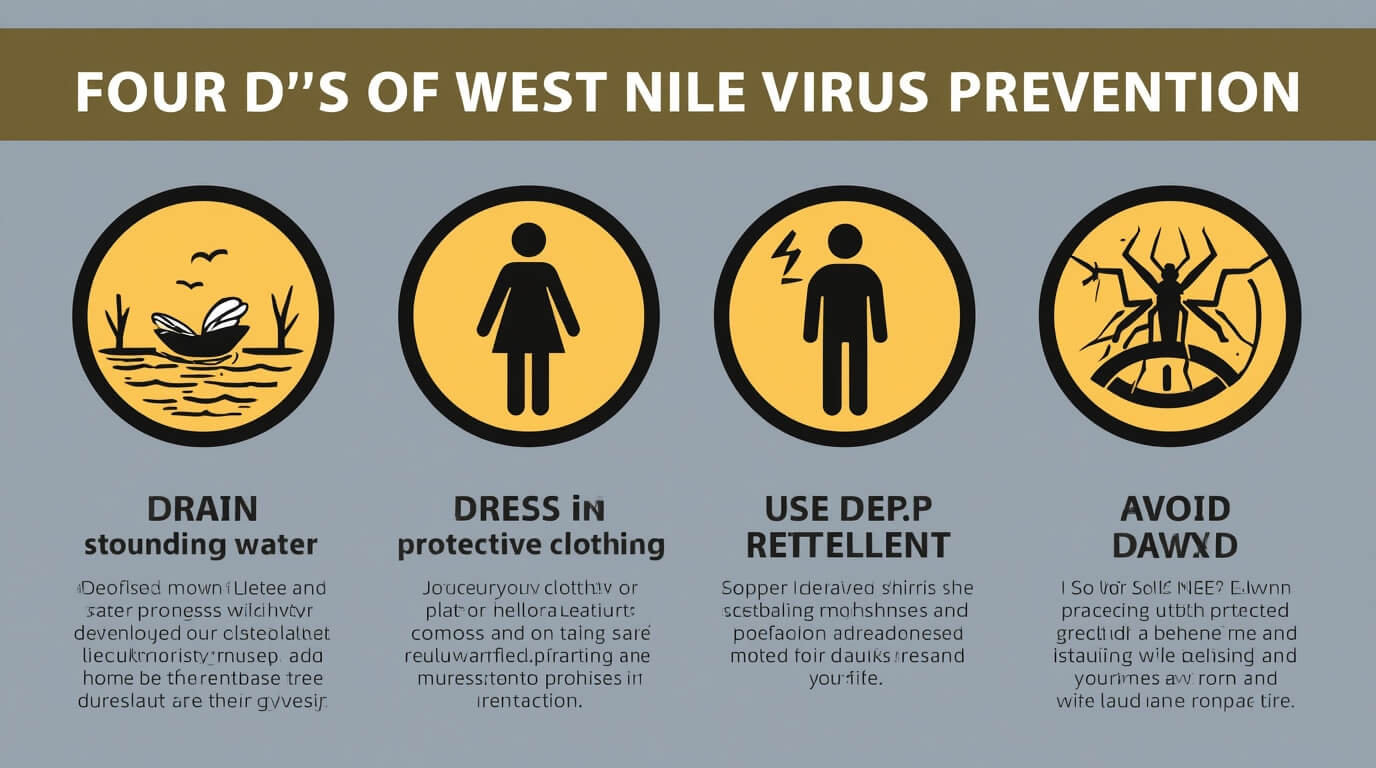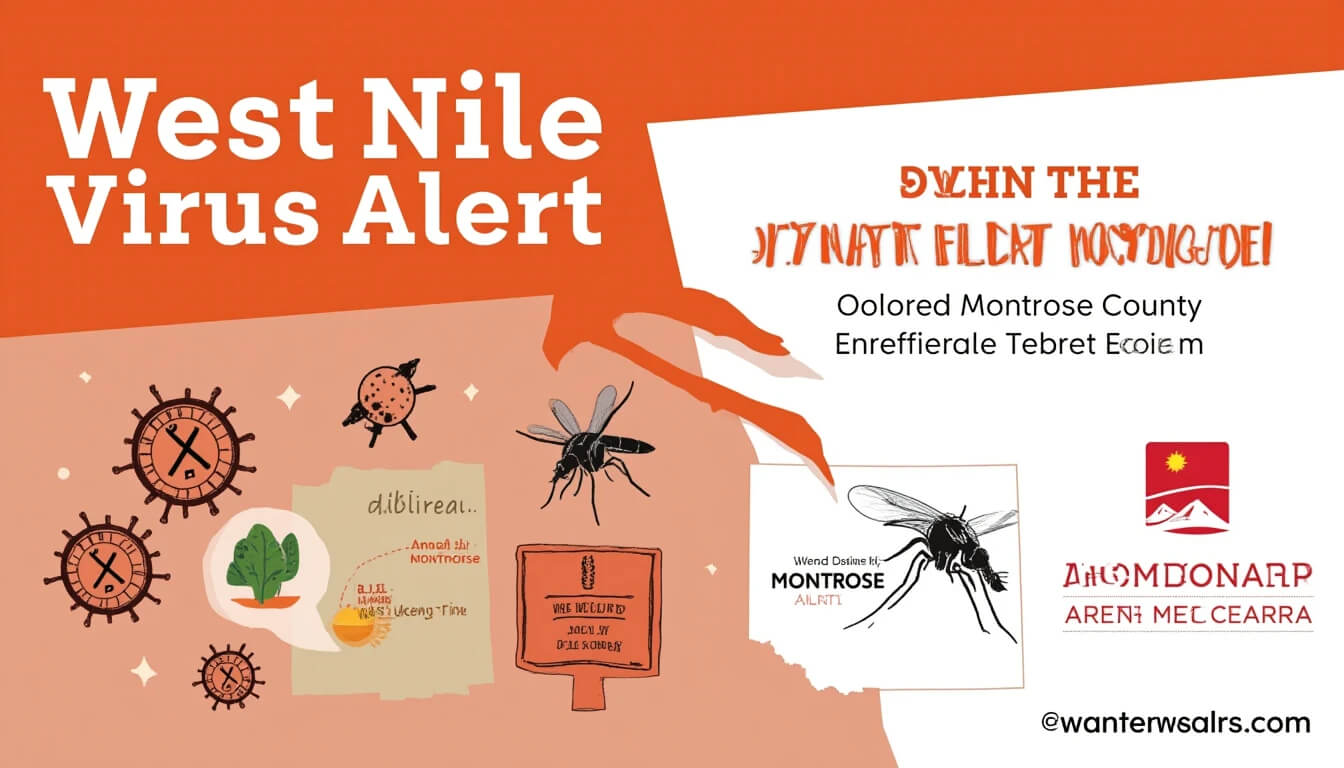As mosquito season peaks, this somber news is a critical reminder for all Coloradans. Here’s what you need to know to protect yourself and your family.
A sobering reality has settled over Western Colorado. Health officials have confirmed the state's first tragic death this year from the West Nile virus, occurring right here in Montrose County. This isn't just a distant statistic; it's a critical, local alert that underscores the real danger posed by mosquitoes as we enjoy the last weeks of summer. The threat is present, it's serious, and it demands our immediate attention.
Understanding the West Nile virus is no longer optional—it's essential for safeguarding the health of our communities. In this comprehensive guide, we will break down everything you need to know about this recent development, what the virus is, how to spot its symptoms, and most importantly, the actionable steps you can take right now to protect yourself and your loved ones from this mosquito-borne illness.
A Tragic First: What Happened in Montrose County
The Colorado Department of Public Health and Environment (CDPHE) recently released a statement confirming the first fatal case of West Nile virus for the 2023 season. The death occurred in an adult resident of Montrose County, serving as a stark reminder that the virus is actively circulating in local mosquito populations.
Public health officials are using this heartbreaking event to urge heightened awareness across the state. "This is a tragic reminder of how serious West Nile virus can be," a hypothetical public health official might state. "While most people who get infected have no symptoms, some can develop a severe, life-altering illness." This confirmation marks a pivotal moment in the season, signaling a peak in virus transmission and the need for increased vigilance from all residents.
What Exactly Is West Nile Virus?
West Nile virus (WNV) is the most common mosquito-borne disease in the continental United States. It was first detected in North America in 1999 and has since spread across the country.
The virus maintains a natural cycle between birds and mosquitoes. Birds are the primary "reservoir" hosts. When a mosquito bites an infected bird, it can pick up the virus. That infected mosquito can then transmit the virus to humans, horses, and other animals when it bites them. It's a chain of transmission that often goes unnoticed until people start getting sick.
The Invisible Threat: How the Virus Spreads
It’s crucial to understand one key fact: West Nile virus is spread through the bite of an infected mosquito.
You cannot get WNV from casual contact like touching or kissing a person who has the virus. In a very small number of cases, it has spread through blood transfusions, organ transplants, and from mother to baby during pregnancy or breastfeeding, but these instances are extremely rare. The primary focus for prevention remains fixed on avoiding mosquito bites.

Recognizing the Warning Signs: West Nile Virus Symptoms
One of the challenging aspects of WNV is its wide range of symptoms—or lack thereof. According to the CDC, approximately 8 out of 10 people infected will show no symptoms at all. However, those who do become ill can experience one of two forms of the disease.Mild Illness: West Nile Fever
About 1 in 5 infected people will develop what's known as West Nile fever. Symptoms are often flu-like and can include:
-
Fever
-
Headache
-
Body aches
-
Vomiting and/or diarrhea
-
Fatigue
-
Skin rash
Most people with this form of the disease recover completely, although fatigue and weakness can last for weeks or even months.
Severe Illness: Neuroinvasive Disease
This is the most serious form of the illness, affecting about 1 in 150 infected people. This occurs when the West Nile virus attacks the nervous system, leading to dangerous conditions like encephalitis (inflammation of the brain) or meningitis (inflammation of the membranes surrounding the brain and spinal cord).
Seek immediate medical attention if you or a loved one develops any of these symptoms:
-
High fever
-
Severe headache
-
Stiff neck
-
Disorientation or confusion
-
Stupor or coma
-
Tremors, seizures, or convulsions
-
Muscle weakness or paralysis
This severe form of the disease can be fatal, and for those who survive, the recovery can be long, with some neurological effects being permanent.
Understanding the Risk: Who Is Most Vulnerable?
While anyone can become infected, certain individuals are at a higher risk for developing the severe, neuroinvasive form of the West Nile virus. These groups include:
-
People over the age of 60: Age is one of the most significant risk factors.
-
Individuals with certain medical conditions: This includes those with cancer, diabetes, hypertension, kidney disease, or a history of organ transplants.
-
Immunocompromised individuals: A weakened immune system makes it harder for the body to fight off the virus.
Your Ultimate Defense: The 4 D’s of Prevention
There is no vaccine or specific treatment for West Nile virus in humans. Therefore, prevention is your most powerful tool. Public health experts recommend following the "Four D's" to protect yourself.
1. DRAIN Standing Water
Mosquitoes lay their eggs in or near water. Eliminate breeding grounds around your home by draining water from:
-
Flower pots, gutters, and birdbaths (change water weekly)
-
Buckets, old tires, and barrels
-
Pool covers and tarps
2. DRESS in Protective Clothing
When you’re outdoors, wear long-sleeved shirts and long pants. Light-colored clothing is often recommended as it is less attractive to some types of mosquitoes.
3. DEET: Use an Effective Insect Repellent
Apply an insect repellent that contains an EPA-registered active ingredient. The most proven are:
-
DEET
-
Picaridin
-
IR3535
-
Oil of Lemon Eucalyptus (OLE)
Always follow the product label instructions.
4. DUSK and DAWN: Limit Outdoor Activity
Mosquitoes that carry West Nile virus are most active during the hours around dusk and dawn. If possible, avoid being outdoors during these peak biting times. If you must be outside, be sure to use repellent and wear protective clothing.
Official Guidance from Colorado Health Authorities
For the most current information and local alerts, we strongly recommend residents refer to official sources. These organizations provide reliable data and guidance based on ongoing surveillance.
Visit the Colorado Department of Public Health and Environment (CDPHE) West Nile Virus Page for statewide updates. Residents of Montrose County should also monitor announcements from their local public health department. For more tips on staying safe this season, check out our guide: 15 Best Weight Loss Foods to Help You Shed Pounds Naturally2. How long does it take to get sick after a mosquito bite?
The incubation period for West Nile virus is typically 2 to 14 days after being bitten by an infected mosquito. People with weakened immune systems may get sick more quickly.
3. Is West Nile virus contagious from person to person?
No, West Nile virus is not considered contagious from person-to-person through casual contact. The primary route of infection is from the bite of an infected mosquito.
4. Is there a vaccine or cure for West Nile virus?
There is currently no vaccine or specific antiviral treatment available for West Nile virus in humans. In severe cases, patients often require hospitalization for supportive care, such as intravenous fluids, pain medication, and nursing care.
5. How can I make my yard less attractive to mosquitoes?
Beyond draining standing water, you can make your yard a less friendly place for mosquitoes by:
Trimming tall grass and weeds, where adult mosquitoes like to rest.
Installing or repairing screens on windows and doors.
Using outdoor insect-killing sprays in mosquito-heavy areas, following all label directions carefully.
Encouraging natural predators like bats and birds that eat mosquitoes.
The news from Montrose County is a profound and somber reminder that the West Nile virus is a serious public health threat right here in Colorado. While it's easy to become anxious, the most powerful response is proactive prevention. By understanding the risks and diligently applying the Four D’s—Drain, Dress, DEET, and Dusk/Dawn—we can significantly reduce our chances of infection and protect our families and communities.
This knowledge is your best defense. Don't let your guard down as we move through the remainder of mosquito season. Stay informed, stay vigilant, and stay safe.
What steps are you taking to protect your family from mosquitoes? Share this crucial information with friends and neighbors to spread awareness, not fear.
This article was written by the Care and Prayer Health & Safety team. Our mission is to provide clear, credible, and actionable information to help our readers navigate today's complex health landscape with confidence. We are committed to E-E-A-T principles, relying on expert sources and official data to ensure our content is trustworthy and reliable.
